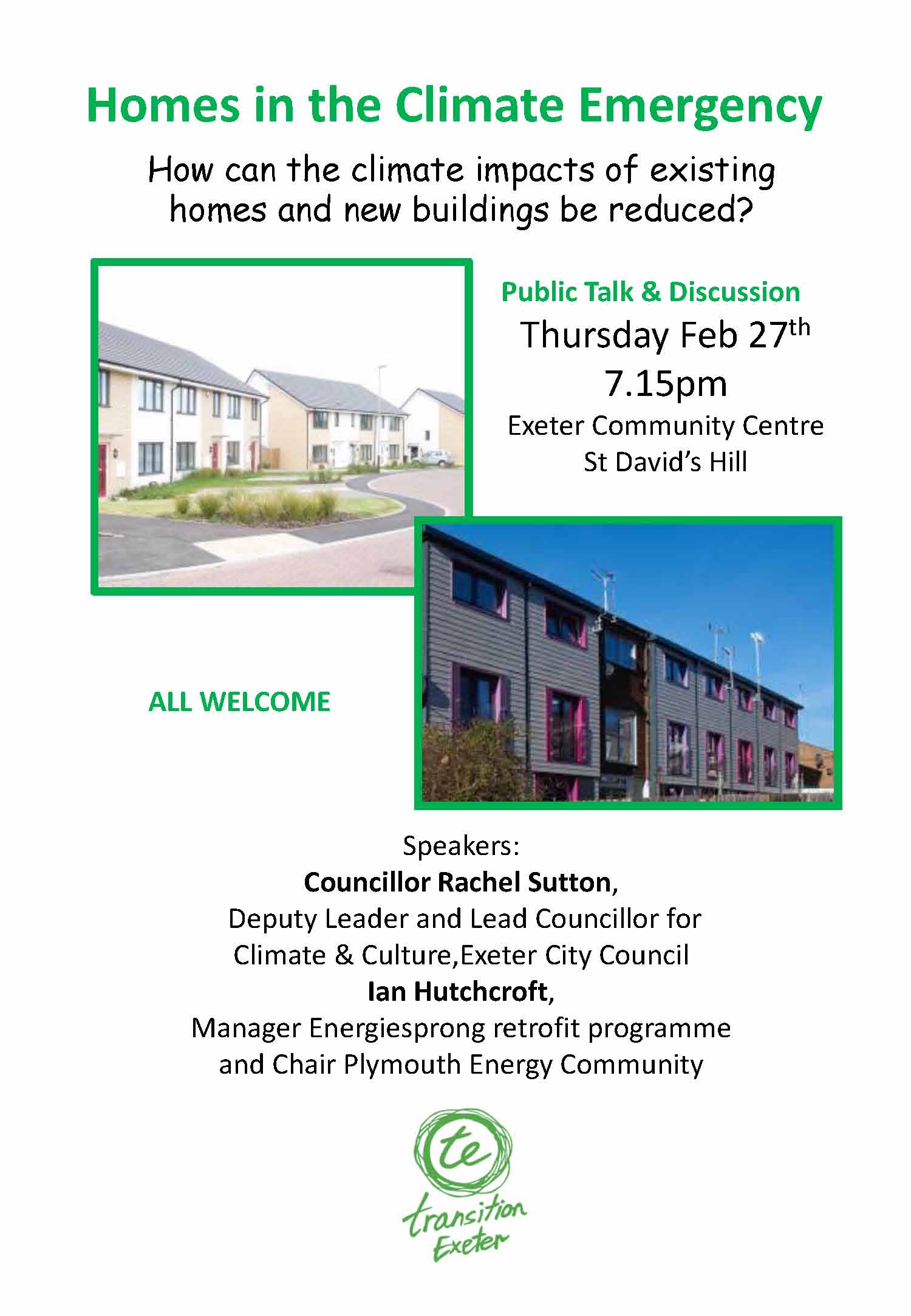
Press release: 24th February 2020
How to create homes that address the climate emergency while improving health and comfort
The question of how to cut bills and reduce or eliminate carbon emissions from our homes will be explored in Exeter this week. A public meeting and discussion, organised by Transition Exeter, will look in particular at how retrofitting thousands of older and poorly insulated homes can reduce their energy requirements.
Exeter City Council last year declared a climate emergency and pledged to make the city carbon neutral by 2030. It is widely acknowledged that such an ambitious target cannot be achieved without tackling emissions from homes, particularly emissions from heating.
Rachel Sutton, the lead Councillor for Climate & Culture in Exeter, will talk about the City Council’s highly acclaimed passiv house programme, which has seen over 100 affordable homes built to carbon neutral standards in the city.
Co-chair of Transition Exeter, Gill Westcott, said:
“We won’t be able to get anywhere near carbon neutral without dealing with the huge carbon emissions from our homes. But the exciting news is all new-build homes can now be built to zero carbon standards while our older or poorly insulated housing stock can be given a makeover.
“I urge those who think tackling climate change is just too difficult to come and hear how cutting emissions from our homes is not only quite achievable but can actually improve our lives. New or retrofitted zero carbon homes can create warmer, healthier, more comfortable places to live as well as reduce energy bills or even get rid of them altogether. Who wouldn’t want to tackle our climate emergency if it means a makeover for their draughty, cold and damp home?”
Ian Hutchcroft, who is the Innovation Director at Regen and Energiesprong UK and leads the Zero Energy Buildings Catalyst (ZEBCat) project in Devon [3] will talk about how to deliver net zero existing and new homes. He said:
“The Dutch Government has developed an approach called ‘Energiesprong’ (Energy Leap) that retrofits houses to a net zero energy standard, paid for through long term energy and maintenance cost savings. Energy bills are low and homes guaranteed to be warm every day, and the whole house makeovers look great too. We have adapted this approach for the UK and started to grow an industry that can deliver net zero homes at scale.”

